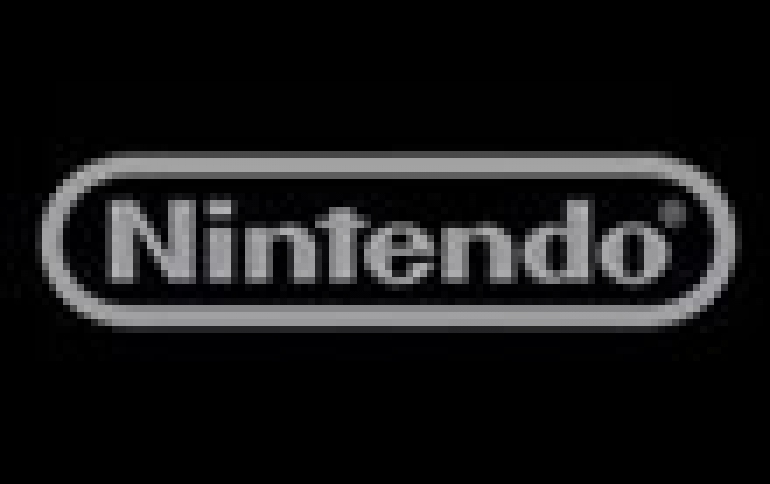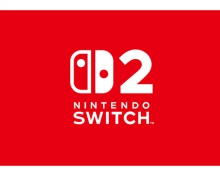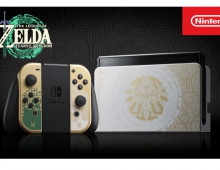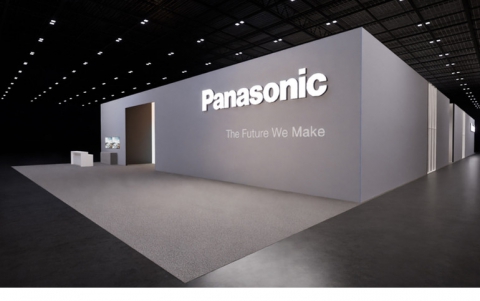
Nintendo To Focus On Video Game Consoles, Expand In Health Business
Nintendo will remain comitted to its game console strategy, which has dragged it into operating losses for three years in
a row, ignoring calls to go mobile and promised instead to wow
customers with health-related technologies.
The Japaneese company has been under pressure to branch out
from its consoles and capitalize on the spread of smartphones
and tablets by releasing games that can be played on any
mobile device.
However, Satoru Iwata, president of Nintendo, said that Nintendo would not take Mario mobile, just a day after Chinese Lenovo declared its mobile ambitions with a deal to buy Google's Motorola handset division for $2.9 billion.
"..we do not hold a pessimistic view of the future of dedicated video game platforms. We therefore believe that dedicated video game platforms which integrate hardware and software will remain our core business," Iwata said.
Although Nintendo will not release its first-party content on smart devices, it will focus on achieving greater ties with its consumers on smart devices and expanding its platform business. Nintendo developers will release applications on smart devices this year that will be capable "of attracting consumer attention and communicating the value of our entertainment offerings," according to Iwata.
He also said there would be a merging of handheld and home game console software architecture, suggesting that users would be able to download and play the same game across platforms in the future.
Speaking about Wii U, he said that simply executing a price reduction as a way to defuse the situation is not an option.
Nintendo will try to fully communicate the value of the GamePad by offering software titles that are made possible because of the GamePad.
In addition, the company will try to promote the NFC (near-field communication) reader/writer function of GamePad by preparing multiple proposals, including the implementation of NFC payments with JR East's "Suica".
Also, one of the major benefits of the GamePad is that it can easily play video games without using the TV. However, after starting up Wii U, there is a wait of over 20 seconds before a user can select a video game title. To solve this problem, a quick start menu for the GamePad will become a reality after a future system update planned for early summer.
The dual-screen Nintendo DS, one of which is a touch screen, has a very strong software lineup, and so Nintendo plans to add the Virtual Console titles from Nintendo DS software to the future Virtual Console lineup for Wii U.
Iwata also wants to change the company's focus from "device-based relationships" to "account-based relationships" indicating that Nintendo's is possibly about to fall in step with the more socially-minded networks of Google and Facebook, even Xbox, PlayStation and Steam.
"It is our intention to release some application on smart devices this year that is capable of attracting consumer attention and communicating the value of our entertainment offerings," he said.
Iwata was vague about the details of the new health business, which will start by March 2016. He hinted that the device or service could be used "beyond the living room" unlike the sports and fitness games available for its Wii and Wii U consoles.
"I'm sure you're thinking of Wii Fit, but this is not like anything we have made before," Iwata said.
"Looking after your health requires effort and many people quit quite soon after starting something. But we, as an entertainment company, can help people get over the difficulty of continuing their efforts in a fun way."
"As those who are already suffering from illness can seek medical care, our new business domain would be providing preventive measures which would require us to enable people to monitor their health and offer them appropriate propositions."
However, Satoru Iwata, president of Nintendo, said that Nintendo would not take Mario mobile, just a day after Chinese Lenovo declared its mobile ambitions with a deal to buy Google's Motorola handset division for $2.9 billion.
"..we do not hold a pessimistic view of the future of dedicated video game platforms. We therefore believe that dedicated video game platforms which integrate hardware and software will remain our core business," Iwata said.
Although Nintendo will not release its first-party content on smart devices, it will focus on achieving greater ties with its consumers on smart devices and expanding its platform business. Nintendo developers will release applications on smart devices this year that will be capable "of attracting consumer attention and communicating the value of our entertainment offerings," according to Iwata.
He also said there would be a merging of handheld and home game console software architecture, suggesting that users would be able to download and play the same game across platforms in the future.
Speaking about Wii U, he said that simply executing a price reduction as a way to defuse the situation is not an option.
Nintendo will try to fully communicate the value of the GamePad by offering software titles that are made possible because of the GamePad.
In addition, the company will try to promote the NFC (near-field communication) reader/writer function of GamePad by preparing multiple proposals, including the implementation of NFC payments with JR East's "Suica".
Also, one of the major benefits of the GamePad is that it can easily play video games without using the TV. However, after starting up Wii U, there is a wait of over 20 seconds before a user can select a video game title. To solve this problem, a quick start menu for the GamePad will become a reality after a future system update planned for early summer.
The dual-screen Nintendo DS, one of which is a touch screen, has a very strong software lineup, and so Nintendo plans to add the Virtual Console titles from Nintendo DS software to the future Virtual Console lineup for Wii U.
Iwata also wants to change the company's focus from "device-based relationships" to "account-based relationships" indicating that Nintendo's is possibly about to fall in step with the more socially-minded networks of Google and Facebook, even Xbox, PlayStation and Steam.
"It is our intention to release some application on smart devices this year that is capable of attracting consumer attention and communicating the value of our entertainment offerings," he said.
Iwata was vague about the details of the new health business, which will start by March 2016. He hinted that the device or service could be used "beyond the living room" unlike the sports and fitness games available for its Wii and Wii U consoles.
"I'm sure you're thinking of Wii Fit, but this is not like anything we have made before," Iwata said.
"Looking after your health requires effort and many people quit quite soon after starting something. But we, as an entertainment company, can help people get over the difficulty of continuing their efforts in a fun way."
"As those who are already suffering from illness can seek medical care, our new business domain would be providing preventive measures which would require us to enable people to monitor their health and offer them appropriate propositions."





















